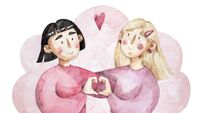Season of the witch: Why are women embracing paganism?
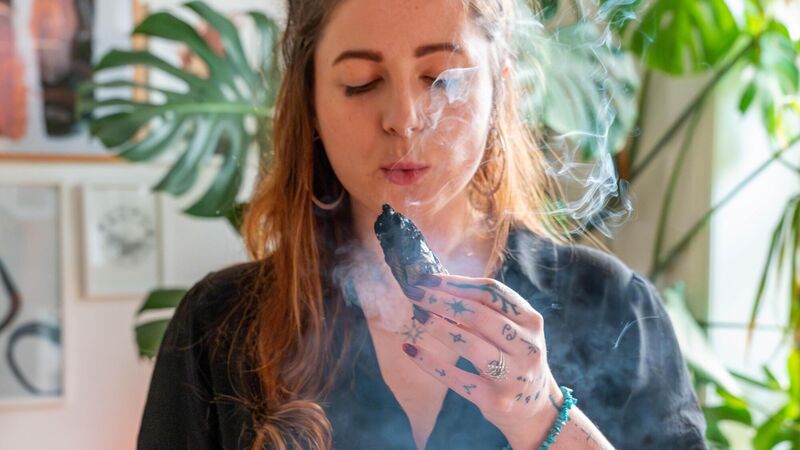
Phoebe O'Regan burns sage to clear the energy within a room and the energy around a client's body. Picture: Norel Sweeney
Witchcraft – and the embrace of “magical” practices, such as reading tarot cards, willing happenings into being and creating tinctures — has recently experienced a resurgence of sorts among young, creative, politically engaged women.
This is largely reflected in niche corners of pop culture; Charlotte Tilbury recently released a fragrance entitled Cosmic Power; Bambie Thug, Ireland’s most recent Eurovision entry, was lauded for their era-defining look and sound (self-described as ‘ouija pop’), while Cecelia Ahern, on the publicity trail for her new book, said paganism was one of the key themes that found its way into her latest release,
So what has caused this cultural shift?
Dr Jenny Butler is a UCC lecturer who teaches on contemporary religions in Ireland, Western esotericism and is a leading scholar in her field, having conducted the first-ever ethnographic study of Irish contemporary paganism.
In her opinion, following almost 20 years of fieldwork, she believes there’s something deeply attractive about being put in touch with an inner source of power that can’t be taken away.
“I think there are a lot of different aspects [of witchcraft] that are attractive, like a rejection of patriarchal religion, or the male god or monotheistic God,” she says.
“But I would say a going against of sorts against the hierarchy, or formal structure of institutionalised religion, is almost greater.
People have talked to me about how funerals or masses feel formulaic or not meaningful, which has led them to create their own rituals.
“That gives freedom and an embodiment of the ritual rather than a separation that one might feel if a priest or practitioner were present.
“The commonality among the people I’ve spoken to is that they’re often quite well educated, and with that comes a desire to go against the norm.
“Witchcraft, or different forms of it like the bean feasa, have always existed,” she continues.
“And with more of an understanding of what that means today— be that from [American TV show] or articles about the Hill of Tara protests — people know more about the craft and as such are more willing to explore it. That means that we could expect more people who self-identify as witches”
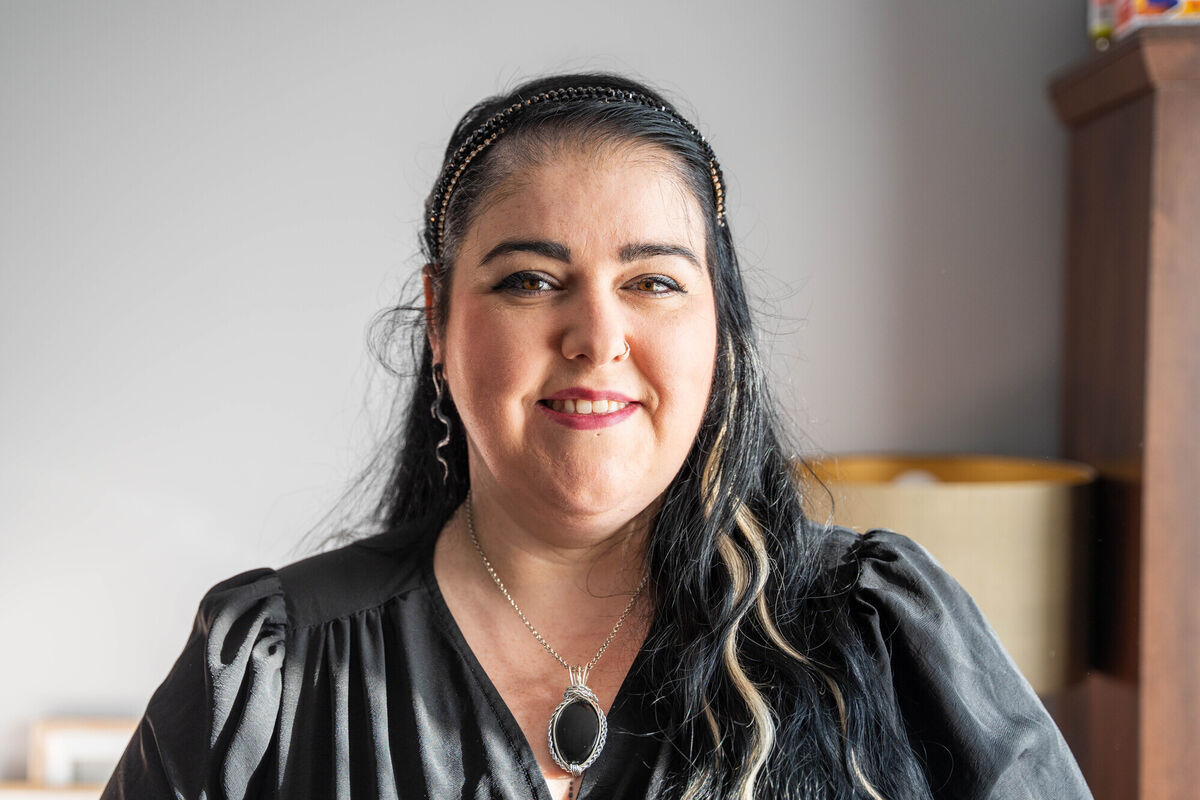
Stacey Walsh, is one such person.
The Cork native first felt the pull of the craft in her 20s.
“I think it was a sense of powerlessness that so many feel at that age,” she tells the Irish Examiner.
“A lot of times, these kinds of journeys are sparked by upset, upheaval — we call them ‘dark nights of the soul’ — where you kind of have to go inwards to find the light.
“I had gone through some darkness in my youth, and began looking at ways to connect with the other side.”
As a child, Walsh was raised Catholic.
“I would have considered myself very religious, but had always felt like something was missing.
“I soon realised it was the feminine aspect. Like, when I prayed, I prayed to Mary.”
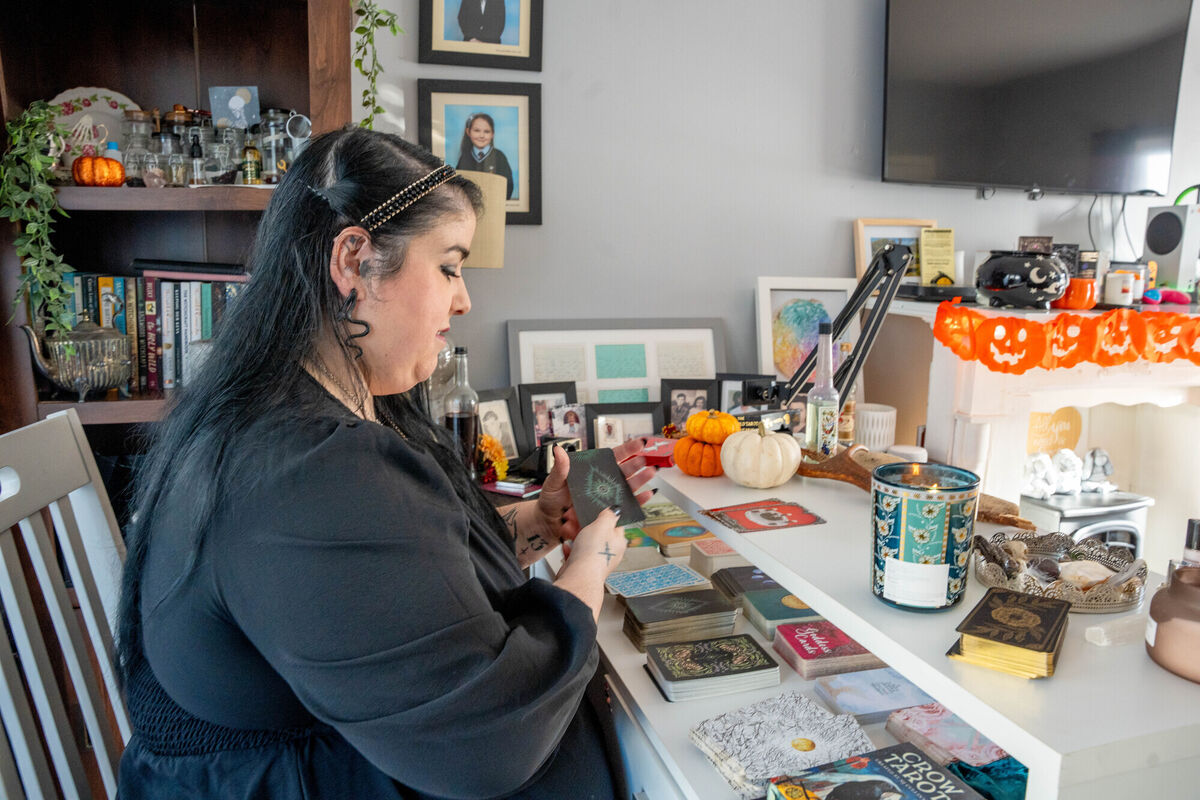
It was then she opened her eyes to a religion centred around female power.
“I sort of dabbled between the two [witchcraft and Catholicism],” she says. “But I was constantly pushed back into the broom closet, which is what we call it.
“I started to take it seriously in my late 20s, but I couldn’t find any resources to learn more.
“I couldn’t find people to follow, and I didn’t know where to look.
“So I set up my Instagram page, @this_irish_witch, to find others. And since, we’ve sort of all found a community.
“Representation can be really helpful,” Walsh says.
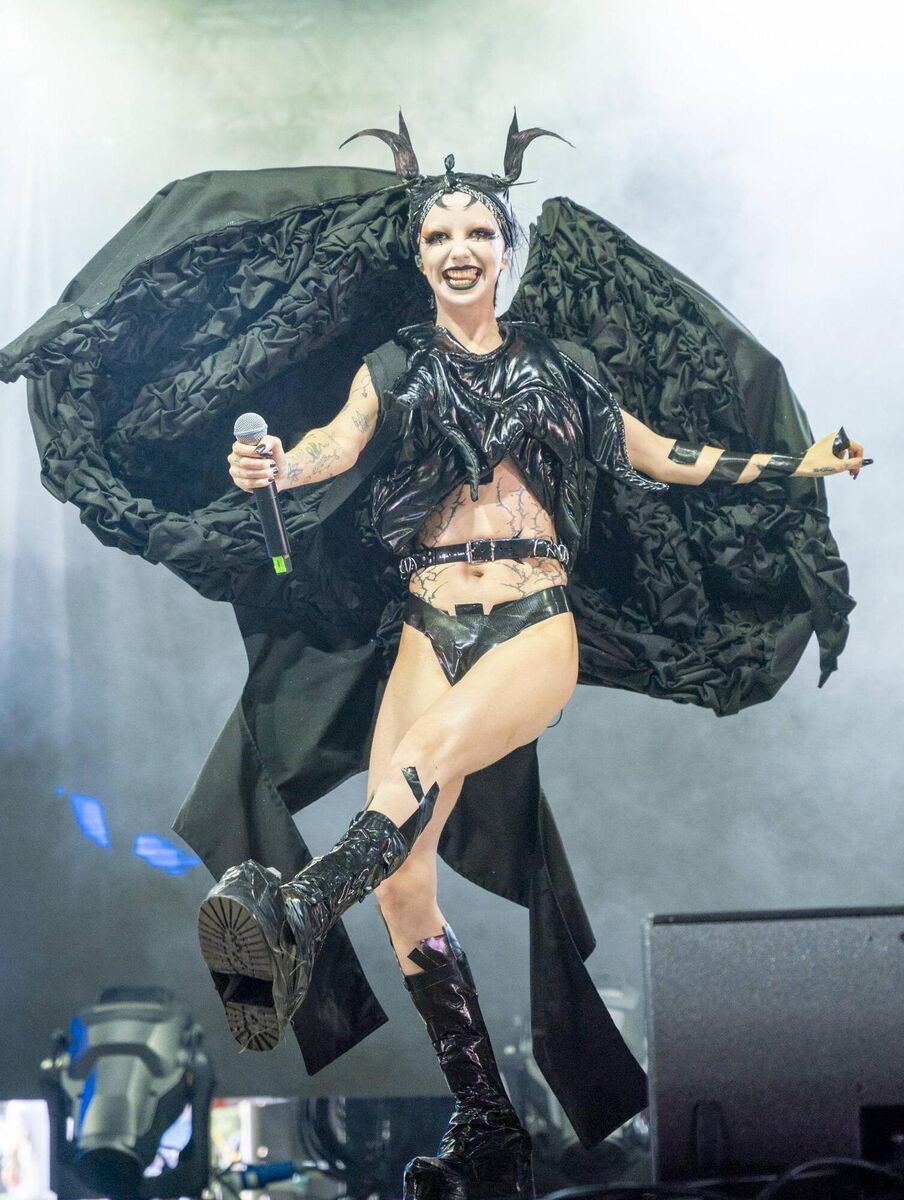
“For example, Bambie Thug is making the word ‘witch,’ — a word that people tend to have visceral reactions to — a bit more mainstream.
“They also helped to rewrite the look of a witch.
Attempting to place a date on the first witch is exceptionally difficult.
Many accept that the first utterance happened by way of Roman poet Horace’s Satires, a collection of satirical poems which embraced the negative stereotype circa 35BC, yet the history of witchcraft has long suffered from unreliable narrators; the Salem witch trials loom large in Western imagination, yet no official records exist.
“They weren’t witch trials, they were femicide,” Walsh says. “You had healers, you had midwives, you had women with money, women who enjoyed sex, women who talked too much, women who were too loud. That’s who was murdered.”
In Walsh’s opinion, the word ‘witch’ became synonymous with “a woman who couldn’t be controlled.
“For a very long time, [the word ‘witch’] was a threat,” she says.
“To reclaim the word witch is to reclaim our right, as women, to be powerful,” wrote Starhawk, in her seminal 1979 book .
Today, the book has sold over 300,000 copies, and is many people’s first introduction to Wicca – a spiritual movement many see as an umbrella organisation of all things spirituality and witchcraft-based.
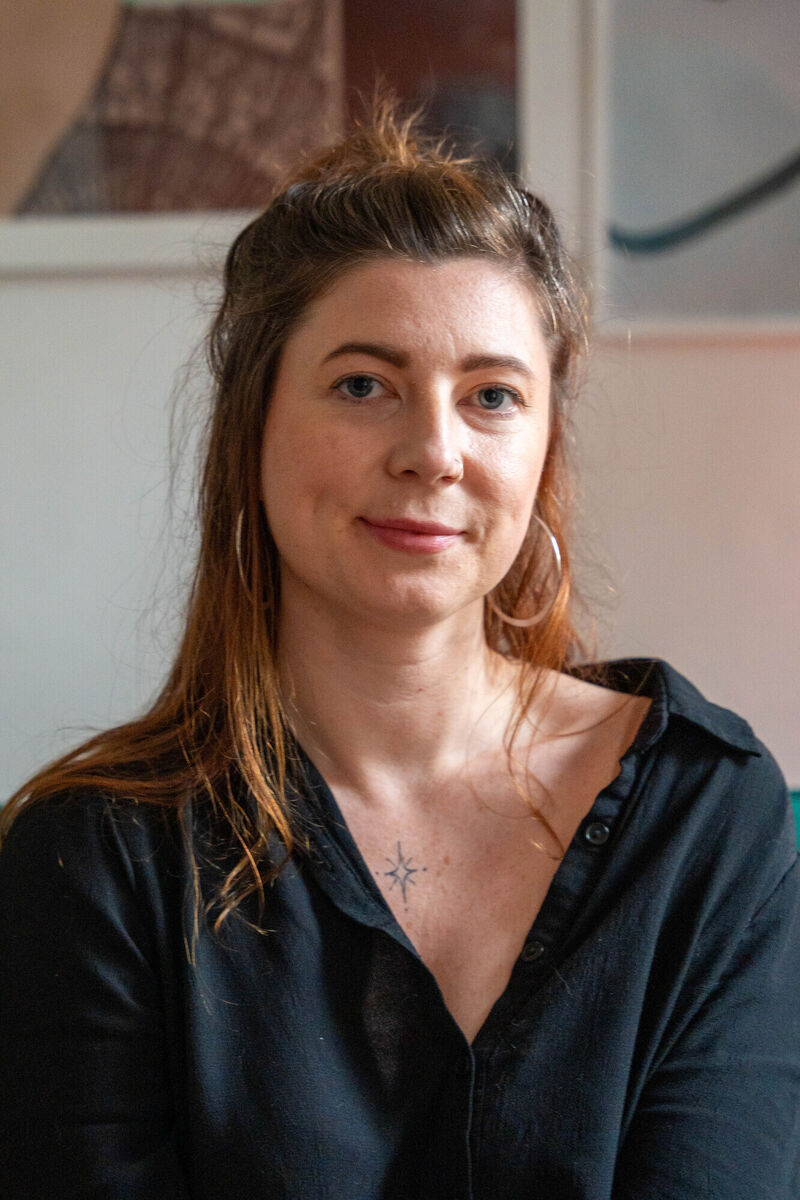
For Phoebe O’Regan, who identifies as a witch and soul coach, her introduction to Wicca also came by way of literature.
“ magazine,” she laughs. “I also spent a lot of time on Wicca forums in my youth, which were kind of encouraged by my grandmother who was a pharmacist. Even though she was trained, she always turned to plants first.
“It made me feel a huge connection to nature, the other realm and energies.”
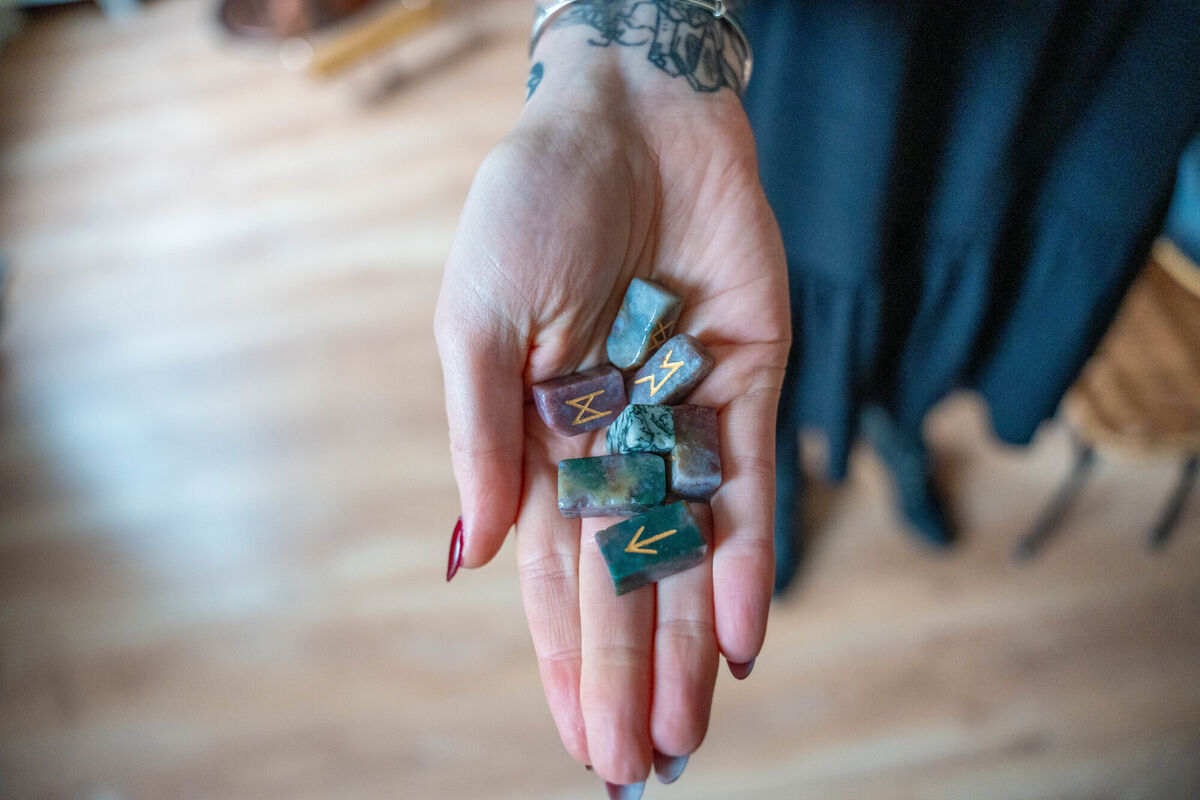
O’Regan says she has noticed a huge uptick in people embracing witchcraft since the pandemic.
“We live in such a fast-paced world,” she says. “And this is kind of antidotal to that.”
O’Regan says her connection with the spiritual world provides her with a sense of “peace, hope, slowness and softness, things that are all really scarce today”.
- Bambie Thug, who embraced their fans calls to “Crown The Witch” during Eurovision, is currently on a tour of the same name, and will be stopping in Cork City Hall on November 7 for a homecoming date.





